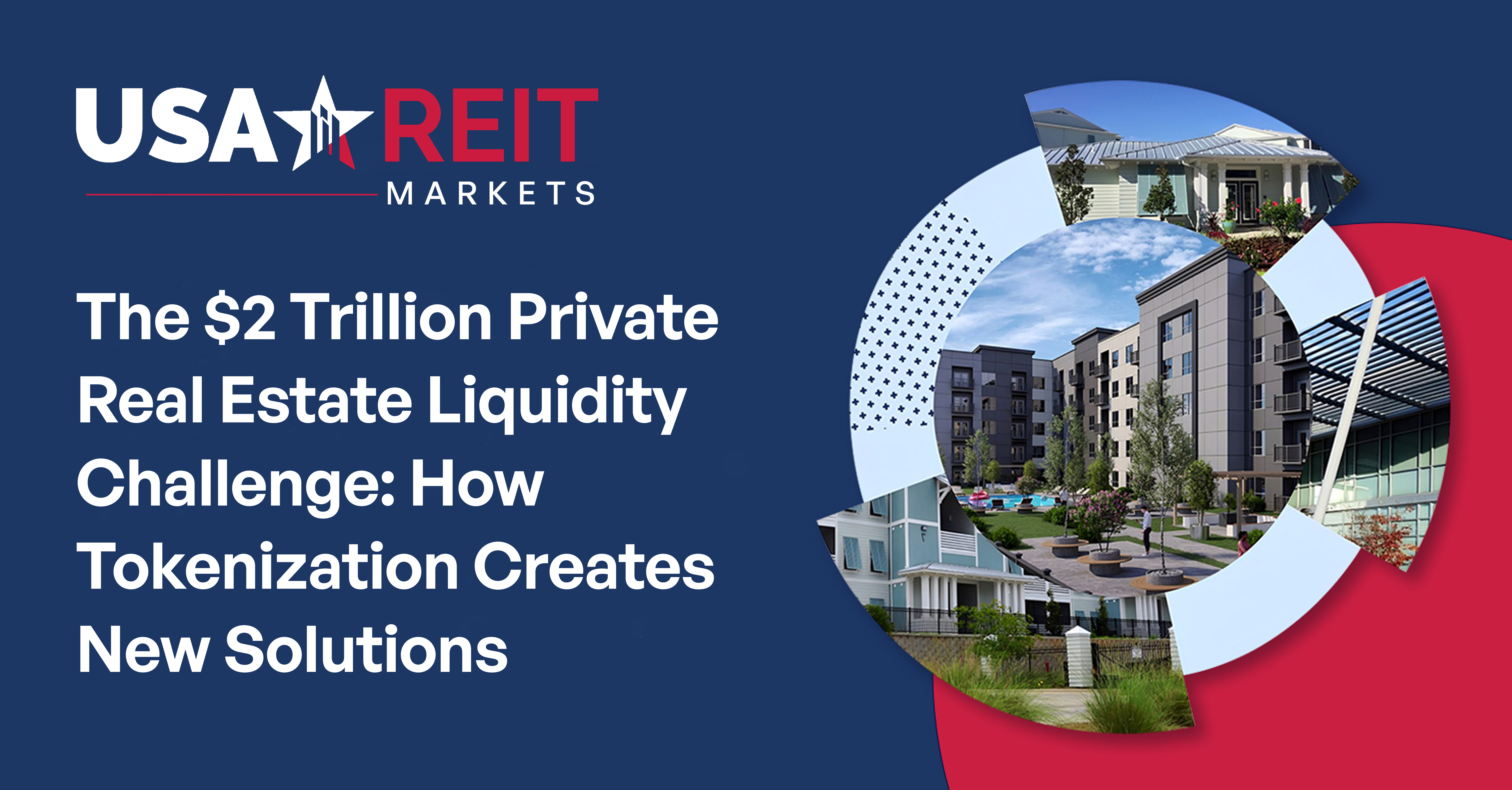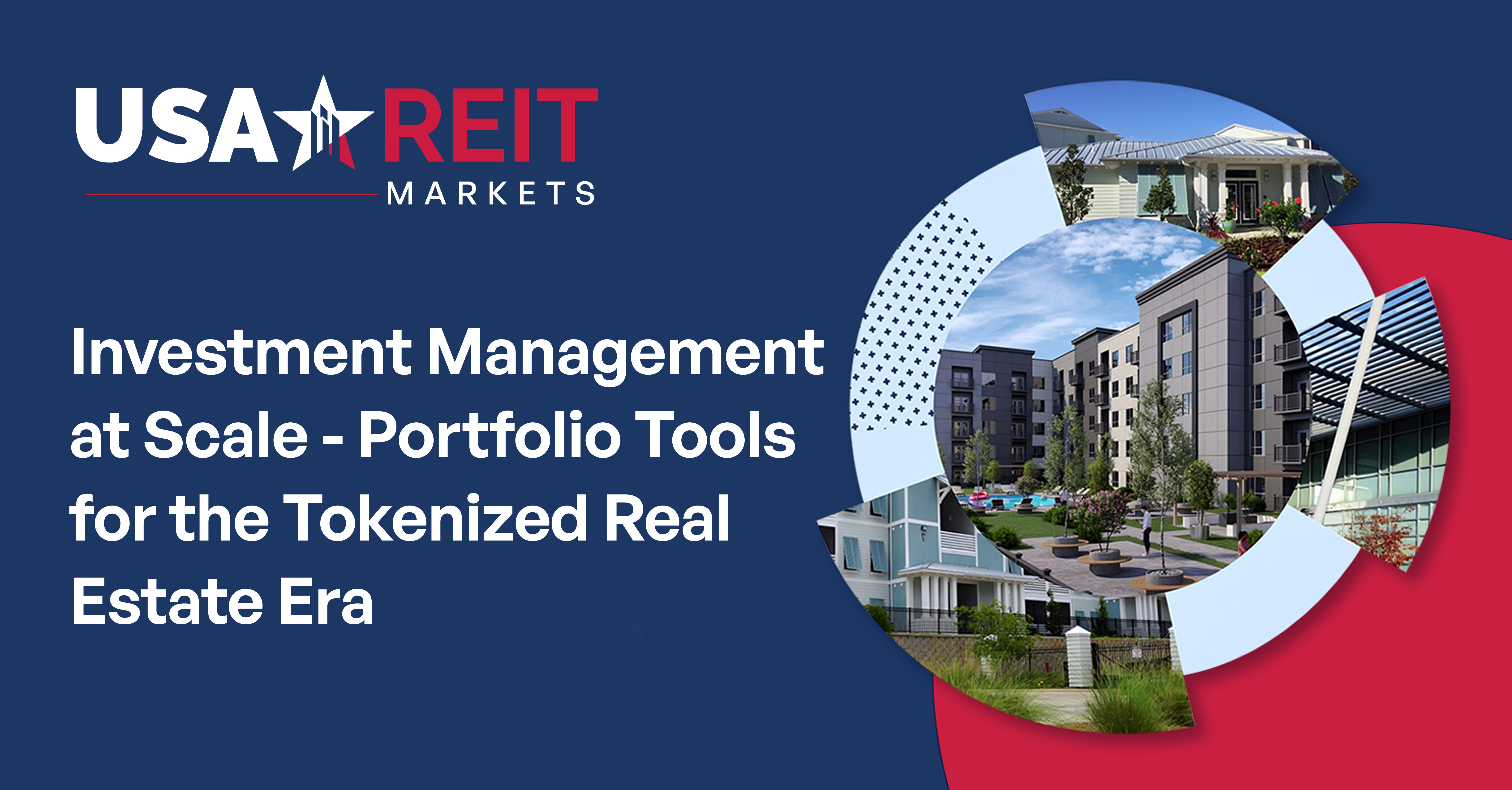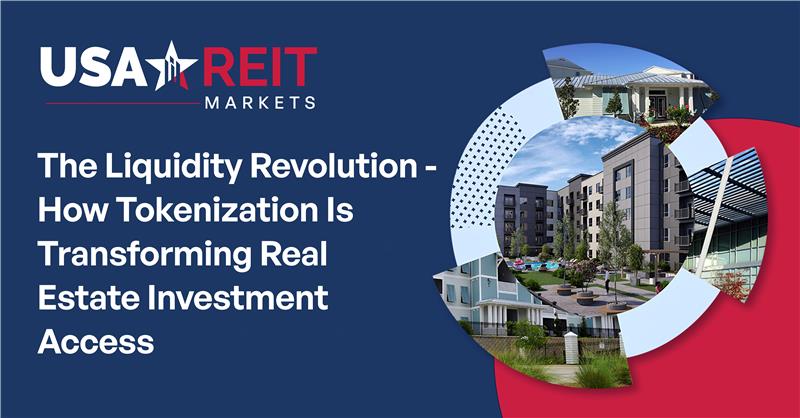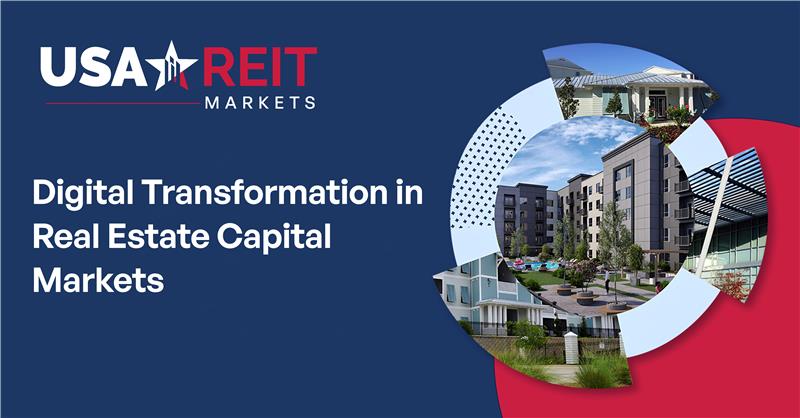The $2 Trillion Private Real Estate Liquidity Challenge: How Tokenization Creates New Solutions

Private real estate investments have long suffered from a fundamental problem that affects both sponsors seeking capital and investors building portfolios: liquidity. With over $2 trillion in private real estate assets experiencing limited liquidity options, traditional market structures create inefficiencies that constrain capital formation and limit investor participation.
Understanding the Scale of the Problem
The commercial real estate market represents one of the largest asset classes globally, yet liquidity remains persistently challenging. Traditional private real estate investments typically require long-term capital commitments ranging from 5-10 years with minimal interim liquidity options. This structure creates mismatches between investor liquidity preferences and portfolio management needs.
USA REIT Markets is developing innovative solutions through blockchain-based tokenization and strategic partnerships with regulated financial infrastructure providers. Our approach recognizes that sustainable success requires more than technological innovation—it demands institutional-grade regulatory compliance.
Through partnerships with FINRA-licensed broker-dealers and SEC-regulated Alternative Trading System operators, our platform may provide qualified investors with secondary market opportunities while maintaining full regulatory compliance and investor protection standards.
Benefits for Real Estate Sponsors
Tokenization may enable sponsors to access broader investor bases through lower minimum investment requirements and improved distribution capabilities. Automated systems could reduce administrative burdens associated with investor management, distribution processing, and compliance reporting. Offering liquidity features may help sponsors differentiate their offerings while potentially reducing required investor returns.
Opportunities for Qualified Investors
Lower minimum investment requirements may enable portfolio diversification across multiple real estate projects and sponsors, potentially reducing concentration risk. Subject to regulatory requirements and market conditions, tokenized securities may provide secondary market trading opportunities. Integrated digital platforms could centralize real estate investment management, automated tax reporting, and performance tracking.
The Technology Infrastructure
Our platform incorporates blockchain infrastructure that may convert traditional real estate securities into digital assets while maintaining regulatory compliance. Smart contract functionality could automate traditionally manual processes such as distribution payments and cap table management. Access to regulated trading systems may provide secondary market opportunities through established financial infrastructure.
Regulatory Framework and Compliance
All tokenized real estate securities operate under existing SEC regulations, including Regulation D private placements, Regulation A+ public offerings, and Regulation S international offerings. The platform incorporates comprehensive KYC/AML procedures, investor accreditation verification, and ongoing monitoring systems to ensure regulatory adherence.
The tokenized securities market continues developing rapidly, with increasing institutional interest and regulatory clarity supporting broader adoption. Industry research projects significant growth for security tokens over the next decade, with real estate representing one of the largest addressable segments for tokenization.
Getting Started
Real estate sponsors interested in exploring tokenization can benefit from consultation services evaluating how blockchain technology might support capital formation objectives. Qualified investors can access educational resources covering tokenized real estate securities, regulatory protections, and portfolio diversification strategies.
We offer comprehensive educational programs including monthly webinars on tokenization technology, regulatory compliance workshops, and industry forums discussing market trends and best practices.
Securities investments involve significant risk and may result in partial or total loss of capital. Tokenization does not eliminate investment risk or guarantee liquidity. Secondary trading opportunities are limited to qualified investors and subject to regulatory restrictions. Prospective participants should consult with professional advisors before making investment decisions.
The development of tokenized real estate markets depends on continued regulatory clarity, technology maturation, and institutional adoption. While the potential benefits are substantial, success requires careful attention to compliance, security, and market development.
Ready to explore how tokenization might transform your real estate investment strategy? Contact our team to learn more about our platform development and educational resources.
Latest Articles






